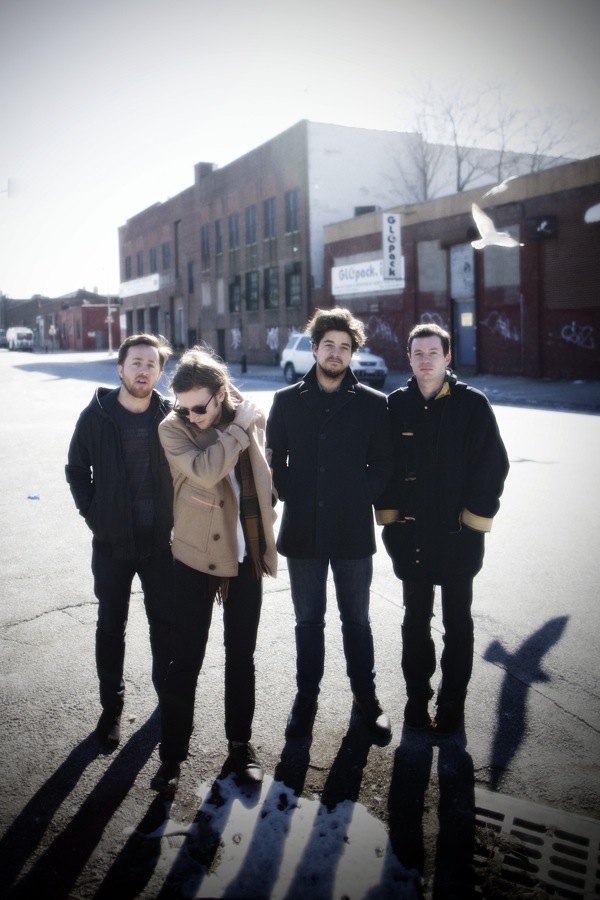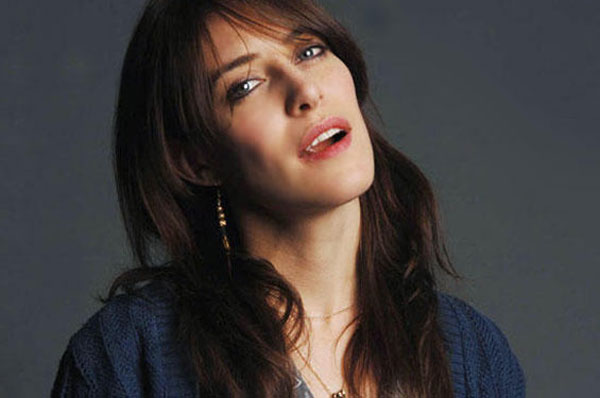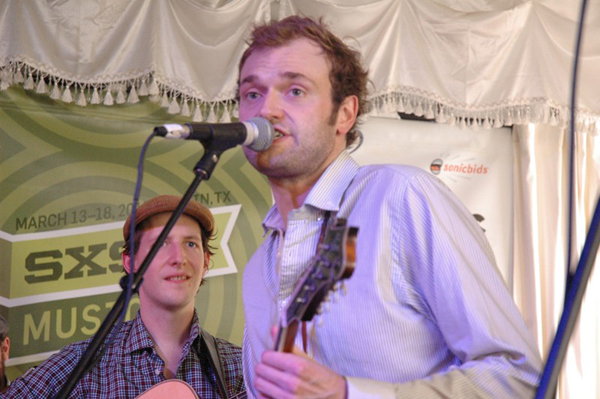Videos by American Songwriter
Matt Vasquez has one of those minds that darts around the room. He has a gift for associative thinking and vaguely-sequitous storytelling, and of course for the finer details that make a good story. A conversation about David Vandervelde (who is touring with Delta Spirit in July) drifts to a bar in St. Louis, The Royale, drinking Jack Roses, a cocktail that Hemingway’s protagonist Jake Barnes drinks in The Sun Also Rises. This train of thought leads to a rattling off of Hem’s own bio—“He was an ambulance driver in World War I, hung out in the ‘20s in Paris, chilled in Spain and fell in love with the bulls, then the good war, the Spanish Civil War, Farewell To Arms, which I think is his best book …then he went to Cuba before Castro came up, got a U-boat hunter and went sportfishing with it. What a life!”
Vasquez is the lead singer and songwriter for the band Delta Spirit. He met the rest of his band mates while busking in California. But like something out of Kerouac, if not entirely in content, then surely in the gusto in which he tells it, that’s not the whole story: “Born in Orange County, California, where my dad’s side settled in the ‘60s. When I was seven, I moved to Austin, got a lot of music education listening to Hendrix and Nirvana… moved back to Dana Point, California, right by the beach, slept on the couch for six months. My dad, on New Year’s Day, rented a two-bedroom apartment. My parents slept in the kitchen, my sister had a bedroom, there was no place to play music except for outside. In Texas, I would busk before class to earn lunch money, that’s kind of how that started. When I got a driver’s license, I went to Hollywood and the first and only time I went to San Diego, Brandon walked by and said, ‘You’re good.’”
The formation of Delta Spirit was a move that seems to have saved each member of the group, who, as Vazquez puts it, were all “having our dreams shattered and hating the bands we were in” in the early ‘00s California indie rock scene.
So Jon Jameson, Brandon Young, Sean Walker, Kelly Winrich and Matthew Vasquez holed up in a cabin in Julian, California, and recorded their first album, Ode To Sunshine. They sold 6,000 copies, mainly on the road, before catching the attention of Rounder Records, who signed the band and re-released the album.
It’s been three years since Sunshine came out—three years of touring, with 290 shows in 2009—or, as Vasquez and Winrich sing in “Golden State”: “The forty-eight, we’ve seen so well, for three short years, we work like hell.” When things did start finally working out for the band, they finally had to take a break.
To record their next album, History From Below, the band went to Cotati, California, and spent time in the studio where Tom Waits recorded all of Mule Variations. Forty songs, which began at sound checks and were fleshed out in hotel rooms, were whittled down to twenty, then fifteen.
Delta Spirit functions in the best sense of the word, “band.” “You try not to finish a song before you show it to somebody else,” says Vasquez. “Because you want the bass and drums to take ownership of their parts, and harmony and guitar for Kelly.”
Maybe 290 days on the road makes a person think about mortality and loss, just a little bit. It’s there on songs like “Bushwick Blues” and “Devil Knows You’re Dead.” Asking Vasquez about lyrical themes on the album leads him into another Kerouacian riff. “I think about death every day,” he says. “I think about life every day. I think about the fact that because I only have two eyes, two ears, one brain, two feet, two hands, ten fingers, ten toes, one dick, I can’t possibly fathom what’s really going on, what truth is… Our country is at war with another country, which thinks they’re completely just and right. Love goes the same way. You could love some girl for all the wrong reasons, but you would have no clue why.”
Maybe the closest thing to truth for Delta Spirit, right now, is playing music. “There’s a spiritual thing about a slow clap at a baseball game,” says Vasquez. “People realize the group unity. Its moving, and music can do that…You can tell a story with [three chords] so easily. We’re not singing about union strikes in 1930. We have a world today to talk about and a medium to talk about it with.”













Leave a Reply
Only members can comment. Become a member. Already a member? Log in.